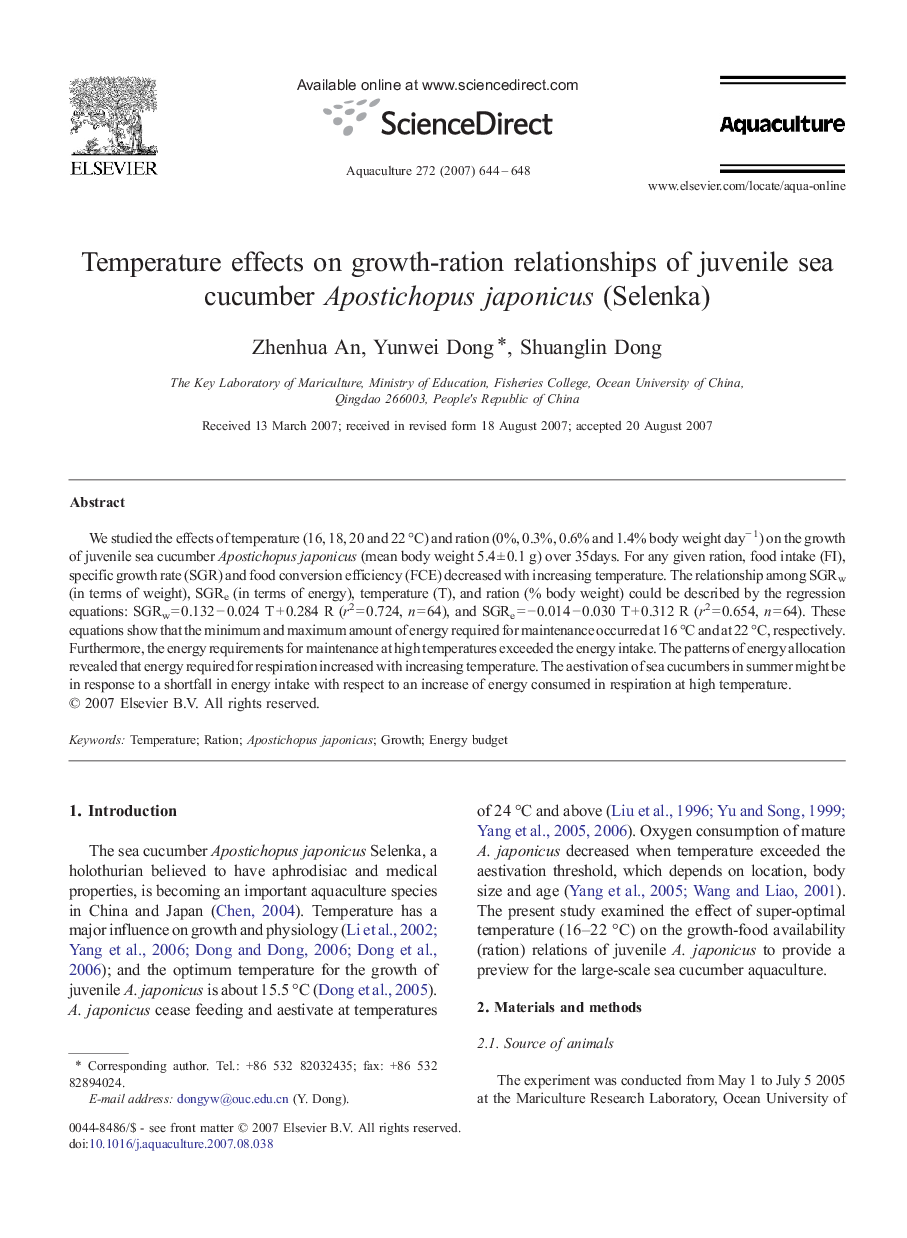| Article ID | Journal | Published Year | Pages | File Type |
|---|---|---|---|---|
| 8496672 | Aquaculture | 2007 | 5 Pages |
Abstract
We studied the effects of temperature (16, 18, 20 and 22 °C) and ration (0%, 0.3%, 0.6% and 1.4% body weight dayâ 1) on the growth of juvenile sea cucumber Apostichopus japonicus (mean body weight 5.4 ± 0.1 g) over 35days. For any given ration, food intake (FI), specific growth rate (SGR) and food conversion efficiency (FCE) decreased with increasing temperature. The relationship among SGRw (in terms of weight), SGRe (in terms of energy), temperature (T), and ration (% body weight) could be described by the regression equations: SGRw = 0.132 â 0.024 T + 0.284 R (r2 = 0.724, n = 64), and SGRe = â 0.014 â 0.030 T + 0.312 R (r2 = 0.654, n = 64). These equations show that the minimum and maximum amount of energy required for maintenance occurred at 16 °C and at 22 °C, respectively. Furthermore, the energy requirements for maintenance at high temperatures exceeded the energy intake. The patterns of energy allocation revealed that energy required for respiration increased with increasing temperature. The aestivation of sea cucumbers in summer might be in response to a shortfall in energy intake with respect to an increase of energy consumed in respiration at high temperature.
Related Topics
Life Sciences
Agricultural and Biological Sciences
Aquatic Science
Authors
Zhenhua An, Yunwei Dong, Shuanglin Dong,
